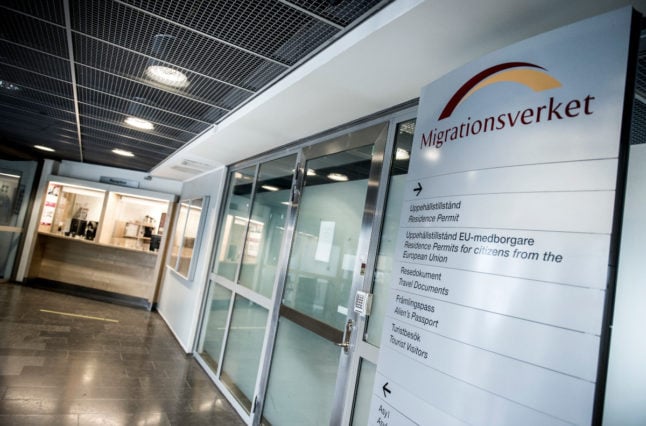A total of 7,090 crimes reported to the police last year were identified by the Swedish National Council for Crime Prevention (Brå) as being linked to hate motives in their latest report.
That's an 11 percent increase compared to the last report from 2016, and 29 percent on 2013.
The motives were broken down as follows:
Xenophobic/racist: 69 percent (4,870 reports)
Sexual orientation: 11 percent (760 reports)
Islamophobic: 8 percent (560 reports)
Christianophobic: 4 percent (290 reports)
Anti-Semitic: 4 percent (280 reports)
Other anti-religious motives: 4 percent (260 reports)
Transphobic: 1 percent (80 reports)
Compared to 2016, anti-Semitic hate crimes saw the biggest increase (up by 53 percent between 2016 and 2018) followed by hate crimes linked to a person's sexual orientation (37 percent).
RECOMMENDED READING:
The proportion of cases in relation to agitation against a population group (hets mot folkgrupp) almost doubled in the same time period, increasing from around 640 to around 1,160 offences – that's an 82 percent increase, or in other words an increase from 10 percent of all hate crimes to 16 percent.
The majority of these incidents were committed against a backdrop of Afrophobia, anti-Semitism or Islamophobia, as well as sexual orientation, said Brå in the report, which was released on Thursday.
Part of the increase is believed to be explained by several campaigns aiming to raise awareness of hate crimes committed online, which has led to more people reporting such incidents when they occur.
Violent crimes (which include homicide, assault and violence against a public servant) linked to hate crime on the other hand dropped five percent according to the report, from 810 such cases in 2016 to 772 last year.

Fifteen percent of reported offences happened on the internet, according to Brå. Photo: Naina Helén Jåma/TT
On the whole, the proportion of violent crimes compared to the total number of hate crimes has fallen from 18-21 percent in 2008-2011 to around 11-13 percent since 2015. In the same period, criminal damage/graffiti linked to hate crimes has increased from less than 11 percent to 15-16 percent from 2015 onwards.
It remains rare for hate crimes to lead to criminal charges.
The more than 6,000 reported incidents in 2016 had a person-based clearance rate – which means that a person was prosecuted or granted a waiver of prosecution – of only three percent as of June 2019.
But the clearance rate varies depending on a number of factors, for example the nature of the offence and how hard it is to investigate or link to a suspect: anti-Semitic hate crimes had a clearance rate of nine percent, while for incidents linked to anti-Roma motives, none of the suspected offences saw a person prosecuted.
Brå noted that apart from assault and unlawful threats, most of the types of offences that make up the hate crime statistics generally have a clearance rate of 0-5 percent, regardless of whether or not they are linked to hate crimes. “However, without also analysing how police and prosecutors work with the investigations, no definitive conclusions can be drawn about the reasons for the size of the clearance rate,” stated the report.
Read Brå's full report here (in Swedish) or an English summary here.



 Please whitelist us to continue reading.
Please whitelist us to continue reading.
Member comments